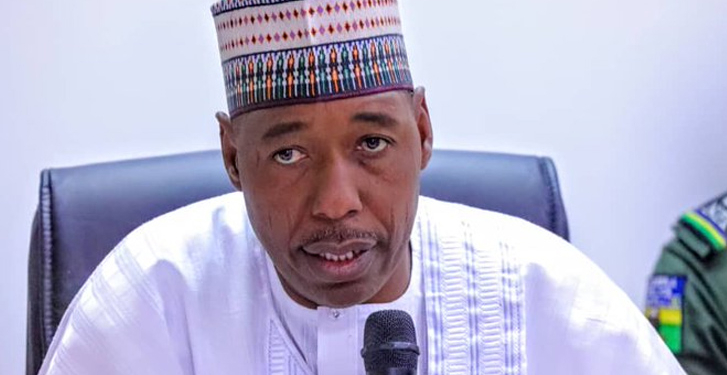Governor of Borno state, Babagana Zulum has stated that his administration, in collaboration with the federal government, is working on a sustainable framework for the surrender of Boko Haram insurgents.
Several Nigerians have criticised and condemned governments’ decision to accept and rehabilitate repentant insurgents.
Zulum while speajing at a town hall meeting in Maiduguri, Borno state, on Thursday said the surrender of Boko Haram members is a welcome development.
The governor said thousands of insurgents have surrendered, and that the law enforcement agencies have been of great help in aiding the process.
“The ongoing surrender of Boko Haram members is a welcome development. We have taken collective decisions to fast track the process of the surrender of Boko Haram members,” the professor said.
“So far, thousands of them have surrendered. We have been receiving tremendous support from the Nigerian army, Nigerian police and DSS, and others at ensuring the success of this very process.
“Governments at state and federal level are working assiduously to establish a sustainable framework that will ensure proper handling of these processes.”
Zulum said the destruction of power lines to Borno has subjected the people to “despair and hopelessness”.
“After the first destruction of the power lines, we mobilised resources to effect necessary repairs both at the federal and state level,” he said.
“After spending millions of naira, the excitement was short-lived as the insurgents 24 hours later destroyed the repaired lines.
“Just a few days ago, the contract for the installation of a thermal energy station in Maiduguri was signed by the NNPC and contractors.
“Very soon, the contractors will mobilise to site and the project will be completed in the next six months. The president has directed the federal ministry of power to look into the possibility of providing 150 megawatts of solar energy plants in Borno state to ensure sustainable power supply to the state.”
On his part, Christopher Musa, theatre commander of the north-east joint task force, said “primitive punishments” should be meted out to those who vandalise public infrastructure.
Musa said the insurgents work on information given to them by locals to attack public infrastructure.
“They have information about our movements on a daily basis. In as much as we try to maintain surveillance, as soon as we leave, information is passed,” he said.
“Another thing is to make the item being vandalised very difficult to sell. There must be primitive punishments for anyone found selling those things in the market.
“We should have carbon markings placed on some of these equipment, so any market where these things are found could be traced to who is bringing it?”








Discussion about this post